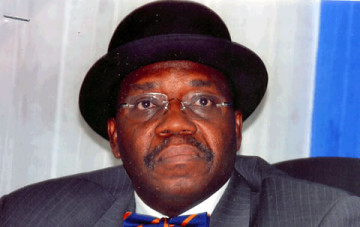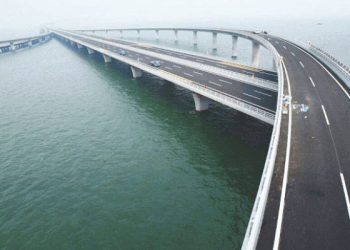The Federal Government’s recent renewed interest in the power sector raises the hope that things may start looking up in that vital, but perennially underperforming area of our national life. President Muhammadu Buhari does not seem to be impressed with what has been on offer despite the massive investment of resources and restructuring that have taken place in the sector in recent years. But tough and radical interventionist actions are required if the desired improvement is to be delivered soon.
After years of neglect and mismanagement, the last two years have witnessed the privatisation of the country’s ineptly-run and massively corrupt electricity sector. But the transfer of ownership of 17 of the 18 unbundled components of the former state-owned power monopoly – the Power Holding Company of Nigeria – has not in any way ushered in the anticipated private sector efficiency and a corresponding improvement in the quality of service delivery.
In a recent interview, Buhari lamented that the power sector had gulped about $20 billion of public funds in the past 16 years, with very little to show for it. Currently, the country generates an average of 4,600 megawatts of electricity daily, according to the Permanent Secretary, Ministry of Power, Godknows Igali. This is no doubt an improvement on the average of 3,500MW of electricity that was reportedly generated last year. But it is also a dismal performance in comparison with some medium power countries such as South Africa, Egypt and Iran that boast 40,000MW, 30,000MW and 62,000MW of electricity respectively.
For whatever reason, Buhari’s concern about the amount spent on the sector has also caught the attention of the Senate, which is currently probing expenditure in the sector, with a view to unravelling how huge sums of money voted to improve electricity supply in the country have been deployed. One of the first things that came out of the Senate investigation is the revelation that N2.7 trillion flowed from government coffers to the power sector in the past 16 years. It was part of the submissions of Igali and the Managing Director of the Niger Delta Power Holding Company, James Olotu.
But many are likely to view the Senate probe with suspicion, given that similar inquisitions in the past turned out to be mere self-serving histrionics that yielded nothing concrete. A typical example was the probe conducted in 2008 by the House of Representatives’ ad hoc Committee on Power, headed by Ndudi Elumelu. In what became a virtual live drama, watched on television, many Nigerians got to hear that contracts were awarded without consideration for due process, while jobs were abandoned after payments were made, sometimes fully. Unfortunately, the report of that probe never saw the light of day. Even the one conducted by the Senate ended in similar circumstances.
A particular aspect of the ongoing inquisition that will attract public interest is the amount of money that has been appropriated for the power sector since the return to civil rule in 1999. This is one issue that has remained elusive since former President Umaru Yar’Adua first hinted in 2008 while receiving the then World Bank Vice-President for Africa, Oby Ezekwesili, that $10 billion went down the drain during the Olusegun Obasanjo administration of 1999 to 2007. The then Speaker of the House of Representatives, Dimeji Bankole, joined the fray, alleging that $16 billion was actually frittered away, not $10 billion. But Ezekwesili, who served in the Obasanjo Administration, lent her voice to the debate, insisting that the government actually spent $3 billion. Her estimate tallied with that of the Presidential Steering Council on National Integrated Power Project, headed by the then Vice-President, Goodluck Jonathan, whose verdict was that $3.08 billion was spent. Gabriel Suswam, the then Governor of Benue State and member of the council, said the project estimate of the NIPP was $10.231 billion, out of which only $3.08 billion was released. Now, Buhari says $20 billion has been spent since 1999.
It is embarrassing that the country only witnessed a paltry increase in power generation of mere 2,600MW in a period of 16 years, taking it from less than 2,000MW in 1999 to 4,600MW in 2015. Curiously, Elumelu claimed that Brazil spent $12 billion to generate 12,000MW of electricity. Yet, Nigeria will only be paying lip service to industrialisation without increasing her electricity generation and distribution capacity.
The powergate scandal will not go away until some people are held accountable. The President has to go beyond what is happening at the National Assembly to commission a thorough forensic audit of government spending in the power sector from May 29, 1999 to May 29, 2015. He should hire world renowned and credible firms for the job. Besides, the whole exercise will amount to nothing if further action is not taken on the outcome of the investigation. This is why it is indeed heartening that Buhari has promised to recover all the nation’s funds that went into wrong hands and left the country in perpetual darkness. Those who collected money must be made to either refund such or go ahead to complete the job for which they were paid. To steer it away from undue political influence, the government should empower such an audit firm to refer cases of fraud, theft or unethical actions directly to relevant law enforcement agencies, including the Police and the anti-graft agencies.











































